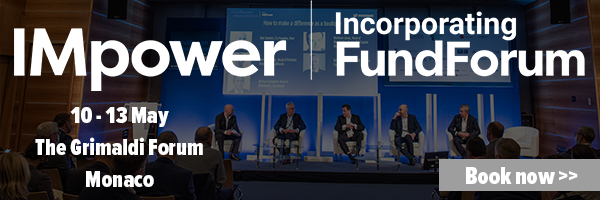Investor behaviour and the digitisation of asset management

After a turbulent few years, it has become essential for the wealth and investment industry to adapt to changing investor behaviour as well as evolve to meet the ever-changing demands of clients. Edward Glyn, Head of Global Markets at Calastone, answers some important questions about changes in investor behaviour and the digitalisation of asset management.
investment industry to adapt to changing investor behaviour as well as evolve to meet the ever-changing demands of clients. Edward Glyn, Head of Global Markets at Calastone, answers some important questions about changes in investor behaviour and the digitalisation of asset management.
Investor behaviour
How has investor behaviour changed and evolved over the past decade?
The new generation of investors are tech savvy, morally aware, info-curious, but often financially illiterate and self-directed. They need access to new, low cost advice services to plan for their future and deal with the massive transfer of wealth that will take place from one generation to the next.
Amongst this generation there is a greater desire to invest in private markets, crypto and perceived socially responsible/ESG investments. They are also seeking to invest in these areas via unconventional means, with a far greater focus on user experience, avoiding traditional financial providers
Alongside this, we are seeing progress towards the democratisation of financial services, driven by access to digital platforms and information. We are also seeing more acceptance of goods being subscription based rather than bought outright.
Some of these trends, however, are not necessarily entirely unique to the younger generation, with the importance of user experience and low cost becoming pervasive across all investors.
What investor behaviours do you predict will become more prevalent in the next 5 years?
The desire for DeFi and digital and tokenised assets will continue to grow exponentially, along with a need for access to a single place for all investment products/activity. Acceptance of financial products from non-traditional financial service providers will growth further, as big tech companies seek to increase their footprint within the financial services industry.
Concurrently we will also see more of a demand for a hybrid of self-service investing and specialist advice.
What has prompted the rise in importance of user experience for investors? What can fund managers do to adapt to this change?
Fund management can be antiquated, opaque and not focussed enough on value and outcomes.
Fund managers need to focus on a better consumer experience, like many digital products available today, as well as other parts of financial services such as insurance, payments and crypto. Fund managers need to either provide engaging, modern, slick D2C propositions or partner with distributors who can provide the same.
How can fund managers overhaul distribution and customer experience to secure relationships with a new generation of customers in the face of changing attitudes and greater competition?
The ‘Amazonification’ of financial services will be the norm – a trusted brand that is easy to access, with engaging front ends, understandable products, community information sharing/promotion and end to end speed/fulfilment. We may also see a ‘gamification’ of financial services and partnerships with marketplace providers.
As distribution evolves, however, its role must be about more than efficiency of reach; in the emerging landscape of funds, it must also enable big ambitions for how they can serve the needs of clients in an environment of ever greater expectations.
Digitalisation of asset management
What impact has the digitisation of asset management had on the industry?
Digitalisation has already had a transformational impact on asset management. We have seen massive cost reduction across the world, while innovation, better access to information, reduced risk, more compelling client propositions and more exciting products are starting to come to the fold. There is, however, a lot more progress to be made, with manual processing causing systemic issues across a number of areas across the value chain.
The slow movement into the digital age by asset managers has been described as glacial. Why has the industry been so slow to digitise?
The impetus for change is often not there in asset management. The industry can be too inward facing, with an antiquated culture. The industry needs to focus more on understanding investor needs and enhance their distribution, operations and manufacturing capabilities accordingly. Asset managers need look at the whole technology mix to enhance straight through processing – from DLT, cloud and APIs, to new microservice-based architectures – and adopt it at the right pace.
What are the benefits of digitising asset management?
Digitalising asset management ultimately provides the opportunity for the industry to provide better value to the end investor, through reduced cost, enhanced product innovation and a more effective and less risk-prone end to end supply chain.
How are fund managers rebuilding their operations to turn data from a headache into an advantage?
The successful fund managers are partnering with the right firms to better access, clean up, interpret and leverage the data they have on their clients. This in turn helps them to understand what clients are looking for, what buying patterns they have, their product suitability and what the best channels are for them to access these services.
What can fund buyers do in order to create the platform for innovation in distribution and product development?
Harness the newest technology to improve the entire supply chain to reduce friction and cost; make better use of client data; use DLT for asset tokenisation and access to private/illiquid markets; Amazonise the buying experience; harness principles of gamification in financial services and increase speed to market for innovation.
Join Edward Glyn at IMpower Incorporating FundForum 2022. Find out more about the agenda and speakers here >>
